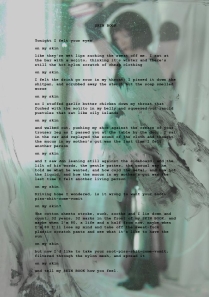This post, by Shannon Donnelly, originally appeared on Writers In The Storm on 1/6/14.
There are a lot of crimes a writer can commit—the torture of sentences, the mangling of meaning, the wrecking of words through using the wrong one at the wrong time. However, the greatest of these is the crime of lack—to forget to put in the emotion.
Now, emotions come in lots of ways and there are lots of opportunities to layer them in, but you have to remember you’re not just putting down words. You are constructing a believable scene with what should be memorable characters (people in other words). And people come with emotions.
Let’s look at the ways to make sure you get the emotion into your scenes.
1. Add emotion through actions.
This goes back to the old ‘show, don’t tell’ advice. You want to show your characters in action so the reader sees who your characters are. Does a character slam a door when he’s angry, or talk softly? Does a character laugh when nervous? Or pick her nose?
Little bits of actions can say a lot about a person. The man who stops to polish his side mirror on his corvette and wipe the speck of dust from its apple-cherry paint job reveals his love of his car. The woman who is always twirling a strand of hair is a flirt. The boy who pops his gum whenever his mother is talking is showing how little he listens to her. Those actions all say something about that character—they show emotions at work.
2. Let emotion color descriptions.
Click here to read the rest of the article on Writers In The Storm.

